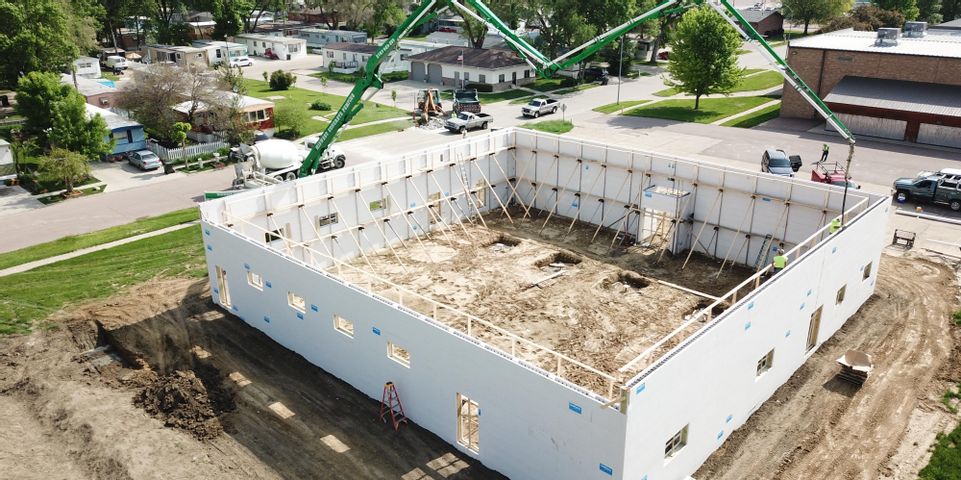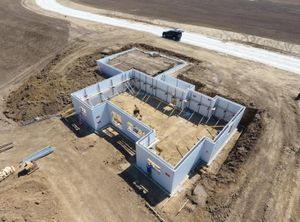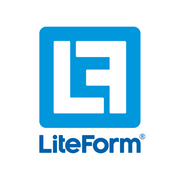
With energy efficiency and natural disaster resistance at the forefront of many building projects, a piece of technology that is increasingly common on construction sites is an insulating concrete form (ICF) system. As a tool that is versatile and easy-to-use for building projects, ICFs provide insulation, protection, and sound-proofing all-in-one. A standout in the industry are LiteForm ICFs, which build upon the utility of similar products by decreasing their physical footprint in transit. To get a better understanding of this useful system, below are a few common questions about insulated concrete forms, and how LiteForm ICFs are a superior version of this tool.
Common Questions About LiteForm ICFs
1. What are Insulating Concrete Forms?
This building system is comprised of hollow block forms that assemble together to create the walls of a building. The pieces are designed to fit seamlessly together, with notches around the edges that piece them together like building blocks. The cavities are supported by rebars and bracing for any openings—like windows and doors—then filled with industrial-grade concrete for a high-performance building. Unlike other types of concrete forms, ICFs become a permanent, useful contribution to the structure rather than just a means of constructing concrete in vertical slabs.
2. What kinds of projects use ICFs?
 Insulated concrete forms can be used for virtually any construction project. They’re popular for commercial buildings because they are cost-effective and extremely energy efficient systems, which also saves businesses money in the long run. ICFs are also an increasingly common strategy for building residential homes for similar efficiency reasons. Once constructed, they look no different than any wood-framed house and have exterior faces covered by the likes of stucco or brick.
Insulated concrete forms can be used for virtually any construction project. They’re popular for commercial buildings because they are cost-effective and extremely energy efficient systems, which also saves businesses money in the long run. ICFs are also an increasingly common strategy for building residential homes for similar efficiency reasons. Once constructed, they look no different than any wood-framed house and have exterior faces covered by the likes of stucco or brick.
3. How is a LiteForm ICF different from other pre-assembled form systems?
The most substantial difference that comes with a LiteForm insulated concrete form system is its packaging. Standard rigid ICF systems can fit only 3,500 square feet of wall forms per shipping truck; LiteForm ICFs, with their patented folding forms, can fit 7,700 square feet per truck. As a result, they reduce shipping costs, CO2 emissions, and job site space without sacrificing the quality of the product. With custom assembly hardware, as well, they can create corners at any angle to perfectly fit your project’s vision.
4. What are some other benefits of LiteForm ICFs?
This system’s insulated concrete forms come in an industry standard 2.5-inch thick option, as well as a 2-inch version, and the size of the concrete core can range from 4 inches to a foot thick. Both elements of the structure have considerable advantages:
- Disaster Resistance: With the insulated concrete forms and concrete combined, the walls can resist 200 mph deadly winds and debris, outlast earthquakes, and eliminate mold growth following flooding. The concrete core has a fire rating of up to four hours, meaning it can resist exposure for that length of time. The form is also made of a flame-resistant bead, making it a preferred choice for “fire” walls.
- Energy Efficiency: The eco-friendly traits of this system don’t stop at shipping. These insulators have an R-rating of R-23 or more. As a result of no air leakage, they reduce the structure’s power bills and include Energy Tax Incentives, making them even more affordable.
With a Sound Transmission Class of 53 or more, the system also has sound retention equal to commercial privacy walls. This capability makes it a rational choice for gun ranges, panic rooms, and music recording studios.
For over 30 years, LiteForm has made it their mission to bring cutting edge, high-performance construction technology to builders and homeowners alike. With energy-efficient, cost-effective products like their standout LiteForm Insulated Concrete Form system, they are dedicated to your project’s bottom line from cost to shipment to build time. For more information about their full line of construction technology, call (402) 241-4402 or visit them online.
About the Business
Have a question? Ask the experts!
Send your question

